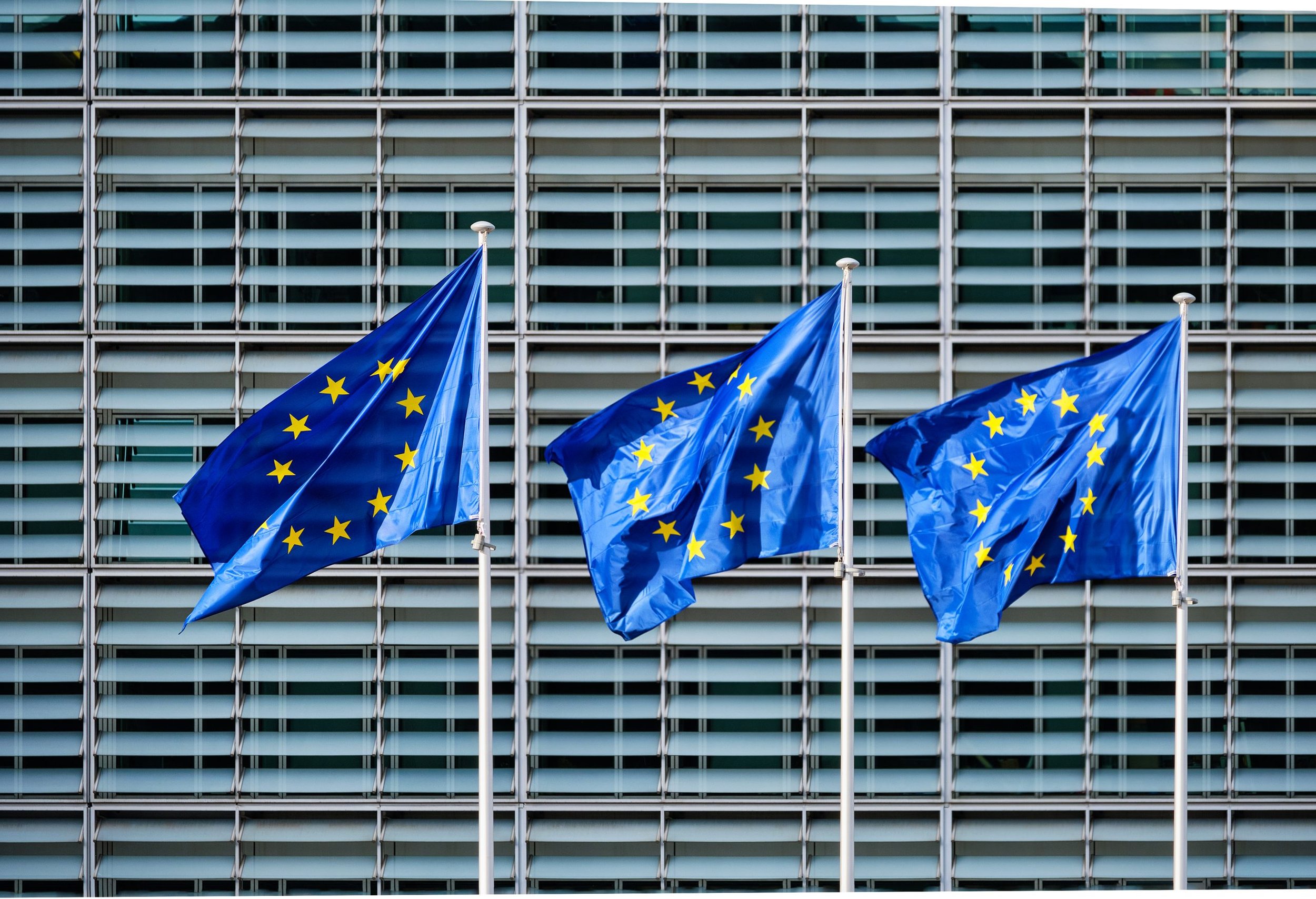The Business Case for Impact
It’s time to put purpose into action. With the release of the latest IPCC climate report and the ongoing challenges of the COVID-19 pandemic, the business case for positive impact should be at the top of the leadership’s agenda. The future belongs to purpose-led organisations that put stakeholder value first. Companies reluctant to place stakeholder value at the core of their business strategy will risk damaging their long-term competitive positioning. In this article we go over five reasons why you should start aligning your business strategy with your stakeholders today.
Reason 1: Buyers are evaluating their value chain
Accountability can contribute to a competitive advantage when buyers demand transparency.
UPS’s Coyote found that 81% of supply-chain professionals claim their companies increased their focus on sustainability in the last three years. Often in response to key partners demanding suppliers to go green and decarbonise their effort. Organisations increasingly focus on reducing their value chain’s overall impact on the environment. Over the past five years more and more partnerships are formed throughout the global supply-chain to make a positive contribution to the planet and society at large.
For example, earlier this year, Nestlé set a goal of a 100% responsibly sourced coffee by 2025. Putting an ample amount of pressure on farmer groups to provide greater transparency and traceability. Encouraging their producers to provide a safer, secure and healthy environment for their workers. Nestlé also commits their packaging producers to provide environmentally friendly packaging by 2025.
“Organisations increasingly focus on reducing their value chain’s overall impact on the environment. Often in response to key partners demanding suppliers to go green and decarbonise their effort.”
Even industries notoriously known for their environmental impact are now committing to a more responsible and sustainable value chain. Mayor players in both the textile industry and the beauty industry have recently pledged to reduce their environmental impact and create more ethically sourced products. Like Patagonia in 2015, vertical textile producers are switching farms to ensure animal welfare and develop cradle-to-cradle circular economy concepts.
Driven by a strong consumer demand for greater sustainability, practically any industry will have to step up in order to survive. For supply-chain partners this means providing proof that their produce is sustainably and ethically sourced becomes crucial. A mere promise will no longer cut it for the end-user.
Reason 2: People want work to be meaningful
Employees want their work to be meaningful and that it contributes to a better tomorrow. They also expect management to share their values and walk the talk.
In today’s world works needs to be meaningful. It’s no longer simply a means to an end. In a 2018 study by Harvard Business Review researchers found that 9 out of 10 people are willing to earn less money to do more-meaningful work. The pandemic, with its long hours working from home, has increased this notion even further. To recruit and retain talent managers need to make sure their employees can see how their efforts lead to a positive impact for the organisation and society as a whole. Show employees how their day-to-day tasks are connected to the organisation’s purpose and how they create value for its customers and stakeholders. In a 2010 study, Wharton management professor Adam Grant showed that when employees interacted with satisfied customers for just five minutes they found their work to be more meaningful and had an increased job satisfaction and overall performance. In addition, meaningful impact reporting and dashboards can increase the understanding of how employees’ efforts contribute to a better world.
“To recruit and retain talent managers need to make sure their employees can see how their efforts lead to a positive impact for the organisation and society as a whole.”
Thereby, an organisations culture sets the premises of how corporate values are acted upon. Today, employees expect leaders to live the values on a same footing. Integrity and public accountability have in the wake of #METOO become top priority to recruit and retain talent. Either your walk the talk or your employees walk.
Last year, on medium.com Google employees announced their Walkout ‘to protest sexual harassment, misconduct, lack of transparency and a workplace that doesn’t work for everyone’. In a letter signed in solidarity with Dr. Timnit Gebru, they demanded greater transparency and commitment to academic freedom. Dr. Timnit Gebru was recently let off as AI-researcher at Google whose research paper on structural bias against women and people belonging to ethnic minorities was censored.
“Times have changed. It may sound like a no-brainer, but employees no longer accept leadership to compromise on core values. In order to attract and retain the best talent your industry has to offer its time to nurture a culture that accounts for leadership transparency.”
Closer to home, Tata Nederland employees held unannounced strikes to demand greater transparency from their parent company. They protested the departure of Theo Henrar. Tata Nederland’s parent company, Tata Steel, says that Henrar is stepping down of his own accord. But workers in the Netherlands believe that he was fired, likely because of his strong advocacy for the interests of Tata Nederland and its workers. Meanwhile, Tata Steel’s mission states that “honesty and integrity are essential ingredients of a strong and stable enterprise” with their first core value being ‘integrity’.
Reason 3: Supply chains are getting smarter
Your operational reality can no longer be swept under the rug. The increase in data of the global supply chain enhanced with AI is drastically changing corporate accountability. Tech companies like Atlana AI and PreWave use predictive analytics to understand risks and track suppliers. They bring billions of data points together to create AI models of the global supply chain to answer questions such as ‘are the goods ethically produced?’ and ‘were the minerals sustainably sourced?’.
Also, big food conglomerates such as Unilever, are pushing to advance their supply chain sustainability with new technology. Unilever is working on a system for suppliers to declare the carbon footprint of their goods and services on their invoice to ensure they meet the company standards. In the same vain Unilever is reimagining its approach to the traceability of their unprocessed crops. Monitoring their famers with satellites they hope to get closer to ending deforestation. The technology leverages GPS data – aggregated and anonymised – to allow Orbital Insight to spot traffic patterns. Where there is a consistent flow of traffic between an area of land and a mill, it suggests a potential link. This means Unilever can get a much clearer picture of where harvested crops are coming from, even down to the individual field. This, in turn, allows them to predict the possibility of issues such as deforestation and, where found, to take action.
Restaurant chain Sweetgreen started working with Watershed in 2020 to fulfil their pledge to be carbon neutral by 2027. Watershed is a software platform that helps companies measure their carbon footprint comprehensively, plan and execute on steps to reduce emissions, and share results with investor-grade reporting. Sweetgreen co-Ceo Nic Jammet told FastCompany he sees it as a good business decision: “If we actually want our business to be successful [..] in the long term, we just think this is the right thing to do. In general, it’s this mentality around what’s good for the planet and good for business don’t have to be mutually exclusive. There’s a business case for this.”
Some brands have taken the data from their supply chain all the way down to the end-user (something Unilever is also expected to do in the near future). Cocokind has added a sustainability label to their packaging stating the carbon footprint along with information on packaging recyclability, ethical labor and more. According to Euan Murray, chief executive of the Sustainability Consortium, carbon labeling is “a growing trend” and “we will get quickly to the point consumers expect to see this type of information”.
With more data of the global supply chain becoming available and with better tools to distil actionable insights, companies can no longer turn a blind eye. Forwarding thinking companies are showing that actions speak louder than words.
Reason 4: Investors are aiming for impact
More and more, investors allocate their capital towards future proof businesses. In December last year, leading institutional investors have committed to investing only in companies with net zero carbon dioxide emissions by 2050 as part of the fight to contain the climate crisis. World leading investment firm BlackRock joined them soon after. Larry Fink, CEO of BlackRock, said that “in light of the coronavirus pandemic there is an increased focus on the climate crisis among investors”. BlackRock later announced they expect companies to have clear policies and action plans to manage climate risks and realise opportunities presented by the global energy transition.
While big tech investments are still leading the pack, impact investing will likely take over in the coming years. Increasingly, institutional investors are stocking their investment portfolios with industries that deal directly with the effects and prevention of climate change, such as sustainable agriculture, green energy, electric mobility and water adaption (both desalination and seawall construction). Paving the way for promising green start-ups that develop innovative solutions to combat climate change. Meanwhile, new fintechs, such as Carbon Equity are working on solutions to make early-stage impact investing accessible for retail investors and thereby further accelerate the transition to a low-carbon economy.
“Companies looking to attract new investments, both for scaling up as starting new ventures, will be expected to account for ESG and aim for a net positive impact on our planet and society at large.”
But it doesn’t stop there. All industries are under scrutiny from investors expecting companies to have future proof strategies. According to PwC 60% of European mutual fund assets will be ESG by 2025, in 2020 already over $40 trillion dollar was invested in ESG-data (Non-financial factors: Environmental, Social, Governance) driven assets. Investors are increasingly applying these as part of their analysis process to identify growth opportunities and avoid material risks. ESG-data is not considered part of traditional financial reporting, yet more and more companies – in part driven by increased regulations – are making disclosures in their annual report or in a standalone sustainability report.
It’s not just institutional investors that aim for social responsible investments. Also, high-net-worth families are allocating their investments towards impact investing motivated to leave the world a better place for future generations. Chairman Trevor Neilson of I(x) investment firm told Bloomberg BusinessWeek that: “We have to create a circular economy that decarbonizes the way we live our lives and addresses the climate emergency. Private capital is the best way to do that at scale.”
Companies looking to attract new investments, both for scaling up as starting new ventures, will be expected to account for ESG and aim for a net positive impact on our planet and society at large.
Reason 5: Regulations are increasing
More regulation is coming. In a recent research PwC sees a shift in sentiment among EU policymakers to increase regulations and environmental policies.
Starting last year, the EU is adopting sustainability taxonomy regulation to fight greenwashing. Insurers, fund houses and pension funds now have to disclose how sustainable they really are. The regulation provides a consistent framework for classifying economic activity as environmentally sustainable. Making it harder to talk up environmental claims and therefore easier for investors to navigate sustainable investments. As a direct result, BlackRock let their clients know last week that currently 17% of the 2 trillion euros in assets it manages is sustainable under new EU rules and that 70% of the funds launched or repositioned in Europe this year should meet the new threshold.
“Working towards a net-positive impact will be the defining competitive advantage throughout most industries for the coming decade. A mere promise to contribute towards climate goals, SDG’s and a more inclusive workplace will no longer be enough. It’s time to put words into actions.”
On another level, the new EU energy label for consumer products that came into effect this month, is more than just a rescaled version of the old label. The new label comes with regulations and eco-design rules on reparability. Enforcing manufacturers and importers to keep spare parts available for 7 to 10 years and deliver them within 15 working days after an order was placed. Meanwhile, increasing emission standards and upcoming stringent rules made the EU the epicenter of electric vehicle adaption last year.
With subsidies and funds available for research and innovation, now is the time to adapt. With 2030 nearing and an increasing demand for ethical goods by consumers, more stringent regulations are definitely coming.
Where to start?
A first step would be to take inventory of your current activities with our Impact Scan. With our Impact Scan we take a big picture perspective and evaluate the overall impact of your organisation’s value chain on the environment and society as a whole. We focus both on what you contribute and what needs to change.
Or start by discovering furfure perspectives for your organisation with our Tomorrow session. In a half-day session, we explore what road lies ahead for your organisation in order to thrive in the purpose economy. We take a snapshot of where your organisation is at right now and mirror possible future scenarios. All in a dynamic setting at an inspiring location.
Want to learn more? Contact me at paul@waai.nl



